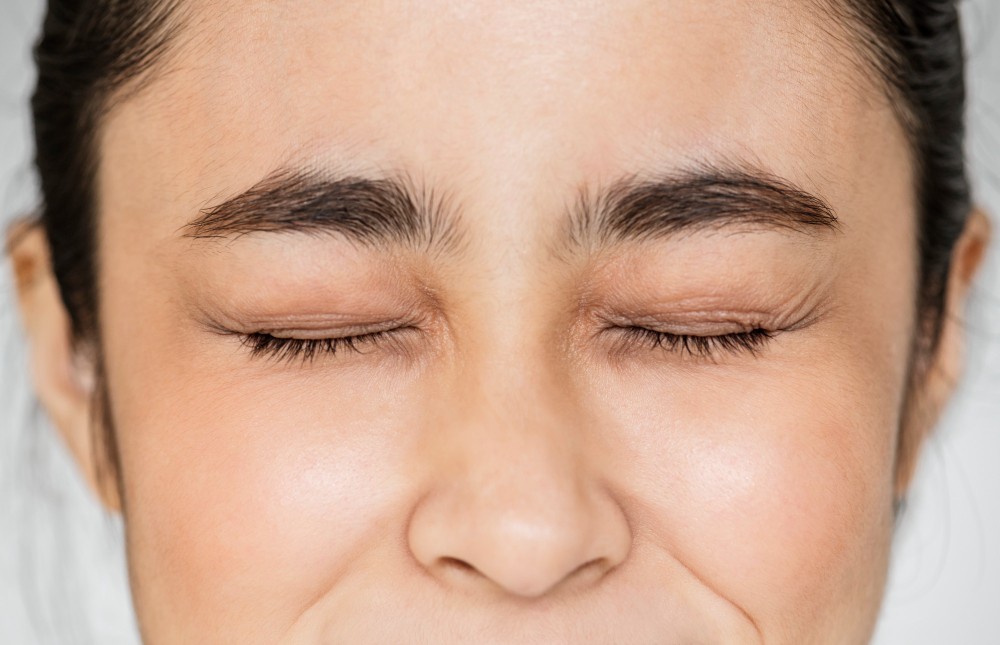Eczema is a skin inflammation that causes redness and itching. It can affect both children and adults. Vitamin E, in both capsule and topical forms, is believed to alleviate eczema symptoms. But is Vitamin E truly effective for treating eczema? Check out the review in the following article.
What is eczema?
Eczema, also known as atopic dermatitis, is a skin condition that leads to dry, itchy, rough, and red skin. Symptoms of eczema can vary from person to person but commonly appear on areas such as the hands, neck, elbows, wrists, feet, and face.
While eczema symptoms are usually not painful, scratching can lead to pain and wounds. In some cases, eczema can cause a burning sensation and discomfort.
Eczema can resolve on its own and may flare up due to triggers. Factors that may trigger eczema include:
- Overactive immune system
- Genetic factors
- Environmental conditions
- Emotional stress
Research on vitamin E and eczema
Experts believe eczema can result from a combination of a compromised skin barrier and inflammation. Changes in skin microbiota, exposure to irritants, and immune system reactions can disrupt the skin barrier.
Vitamin E is an antioxidant with anti-inflammatory properties. It works by limiting the formation of reactive oxygen molecules, thus reducing inflammation and damage to the skin. Several studies have shown positive results regarding vitamin E for eczema, but more research is needed to fully understand its benefits.
Here are some findings from studies on vitamin E and eczema:
- Vitamin E supplements: Studies suggest that taking oral vitamin E supplements for 3 months can reduce eczema symptoms, including itching
- Vitamin E creams: Vitamin E is also available in topical creams. Research indicates that applying vitamin E cream can result in better healing compared to using a placebo cream
- Vitamin E-rich foods: Adults and children over 14 years old are recommended to consume 15 mg of vitamin E per day. This can be achieved through supplements or by eating foods rich in vitamin E, such as nuts, seeds, soybeans, corn, vegetable oils, and green leafy vegetables
Although the research is promising, more studies are needed to determine the efficacy of vitamin E creams and supplements in treating eczema symptoms. Consuming vitamin E-rich foods is also recommended.
If you intend to use vitamin E to treat eczema, consult your doctor first, as certain foods may cause flare-ups. To avoid overdosing, take vitamin E supplements exactly as prescribed by your healthcare provider.
How to manage eczema
Eczema management can vary based on its cause and triggers. Treatments may include:
- Applying gentle moisturizers, especially after bathing
- Using topical medications as prescribed by your doctor, such as topical steroids
- Taking oral medications like anti-inflammatory drugs, antihistamines, or corticosteroids to reduce itching and swelling
- Using immunosuppressive drugs to regulate immune system function
- Light therapy to improve skin appearance and reduce discoloration
- Avoiding triggers that cause eczema flareups
The goal of eczema treatment is to reduce itching and discomfort and prevent flare-ups. If treatment does not improve your eczema, consult your doctor. You can also make use of the consultation features that are available in the Ai Care application by downloading the Ai Care application from the App Store or Play Store.
Looking for more information about other diseases? Click here!
- Sean Edbert Lim, MBBS
Meissner, M. (2023). Can vitamin E treat eczema?. Available from: https://www.medicalnewstoday.com/articles/can-vitamin-e-treat-eczema
Hullet, A. (2024). Using Vitamin E to Manage Eczema. Available from: https://www.healthline.com/nutrition/vitamin-e-for-eczema
Amera, R. (2023). 6 Helpful Supplements for Eczema. Available from: https://www.healthline.com/nutrition/supplements-for-eczema
Cleveland Clinic. Eczema. Available from: https://my.clevelandclinic.org/health/diseases/9998-eczema
American Academy of Dermatology Association. Can Oils, Probiotics. or Vitamins Heal Eczema?. https://www.aad.org/public/diseases/eczema/childhood/treating/oils-probiotics-vitamins










